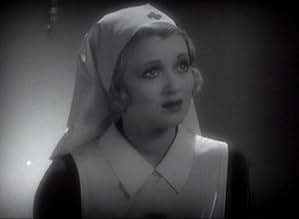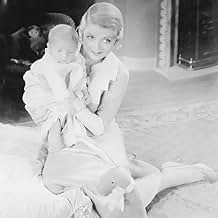अपनी भाषा में प्लॉट जोड़ेंA war officer who is thought dead returns to the woman he loves, only to find that she has remarried.A war officer who is thought dead returns to the woman he loves, only to find that she has remarried.A war officer who is thought dead returns to the woman he loves, only to find that she has remarried.
- पुरस्कार
- कुल 1 जीत
Daisy Belmore
- Tibbetts - Nurse
- (बिना क्रेडिट के)
Billy Bevan
- Departing British Soldier
- (बिना क्रेडिट के)
Edmund Breon
- Tom Kent
- (बिना क्रेडिट के)
Eddy Chandler
- Captain Peters
- (बिना क्रेडिट के)
Jay Eaton
- Dancing Doughboy
- (बिना क्रेडिट के)
Bill Elliott
- Dancing Doughboy
- (बिना क्रेडिट के)
Fred Esmelton
- Ponsonby's Butler
- (बिना क्रेडिट के)
Mary Forbes
- The Duchess
- (बिना क्रेडिट के)
Elizabeth Forrester
- Evelyn Kent
- (बिना क्रेडिट के)
Robert Greig
- Hansom Cabby
- (बिना क्रेडिट के)
Olaf Hytten
- Aide to Major General
- (बिना क्रेडिट के)
Claude King
- Major General Visiting Hospital
- (बिना क्रेडिट के)
फ़ीचर्ड समीक्षाएं
I saw the last part of this on TCM; it was Joel McCrea day.
It didn't really fit -- this is Constance Bennett's movie, 100%, and that's the problem. This has to be one of the worst performances of her career. Even making allowances for 1931, she is very histrionic and melodramatic, in all the worst, most silent-movie-cliché ways.
Technically, Paul L. Stein's direction is fine (for 1931), but it appears from this he was not an "actor's director". Oddly, Ms. Bennett's next film, "The Common Law," re-teamed her with director Stein and costar McCrea. It is better; not memorable, but at least she isn't painfully bad in this one.
It didn't really fit -- this is Constance Bennett's movie, 100%, and that's the problem. This has to be one of the worst performances of her career. Even making allowances for 1931, she is very histrionic and melodramatic, in all the worst, most silent-movie-cliché ways.
Technically, Paul L. Stein's direction is fine (for 1931), but it appears from this he was not an "actor's director". Oddly, Ms. Bennett's next film, "The Common Law," re-teamed her with director Stein and costar McCrea. It is better; not memorable, but at least she isn't painfully bad in this one.
Not uninteresting pre-Code soap suds, wherein Yankee nurse Bennett, in London (nice historical touch: a bus advertising "Chu Chin Chow") meets Captain Joel McCrea, they have a torrid romance and pledge their troth, and while carrying his child she hears he's dead. We know he's not--he's second-billed, and there's an hour to go--but she thinks he is, so she marries Paul Cavanagh on the rebound and we wait for the fireworks that will erupt when McCrea returns. Connie's histrionic- -she gets to love, yell, sob, scream, and put on a phony British accent, even though she's playing American--and Paul Stein's camera likes to linger on her overemoting. But Joel McCrea was certainly the personification of solid masculine American values circa 1918 or 1931, and his sincere underplaying nicely complements her overplaying. The screenplay doesn't hate her for having a child out of wedlock, and the happy ending isn't that happy. So, by 1931 standards, it's an adult movie. Just not a very good one.
It is WWI. Brooklyn gal Doris Kendall (Constance Bennett) meets American flyer Captain Barry Craig (Joel McCrea) during a Zeppelin attack in London. She is later told that he has been shot down and presumed dead. Her friend Sir Wilfred Drake (Paul Cavanagh) proposes marriage. She tells him that she's pregnant with Barry's baby. He marries her anyways. It turns out that Barry is still alive.
This is a rather boring story for the first hour. It's a lot of things that keep it that way. The movie makes a dramatic turn at around the hour mark. It needed the villainous turn to raise the intensity. By then, most of the audience has probably lost interest. Then it takes a dark turn that feels undeserved. I don't really understand Wilfred at that moment.
This is a rather boring story for the first hour. It's a lot of things that keep it that way. The movie makes a dramatic turn at around the hour mark. It needed the villainous turn to raise the intensity. By then, most of the audience has probably lost interest. Then it takes a dark turn that feels undeserved. I don't really understand Wilfred at that moment.
In BORN TO LOVE, Constance Bennett (Doris) and Joel McRea (Barry) are lovers who meet during the last weeks of the First World War. London is portrayed as a city in imminent danger of bombs from aircraft. They meet and predictably fall in love despite the chaos and confusion that surround them. There is an interesting scene in which they make love, one that is prudishly suggested off screen, yet one that in just a few years would have been banned by Hollywood as overtly salacious. The plot is the contrived package of Barry's reported death, forcing Doris to marry another. The second half of the film is less melodramatic and more of an acerbic commentary on the harshness of an English divorce system that allows a rich and titled husband to retain custody of a child over the wishes of a impecunious mother. There is an encoded ideology in the film that does not hide the fact that poor women who marry titled men can expect no mercy or kindness from a patriarchal legal system. BORN TO LOVE nevertheless carries the audience to a satisfying if not predictable conclusion of the need for true love to triumph over formidable societal obstacles.
Born to Love (1931) is rather silly but nevertheless is a good example of a candid treatment of divorce law before the Production Code of 1935 put a stop to serious treatment of divorce or of pre-marital sexuality. Stuck in a loveless marriage to Wilfred, a haughty English aristocrat, Doris causes Wilfred to believe she has committed adultery. The consequences to her are catastrophic.
The plot is creaky and relies on numerous contrivances. The acting is highly forgettable. Nevertheless, the issues of fault-based divorce are important ones. The movie also concerns the conflict between marriage as an institution for love and fulfillment as opposed to a unemotional union designed for the mutual support of spouses and children. Needless to say, divorce law in the old days was much better adapted to the latter vision of marriage than the former.
The plot is creaky and relies on numerous contrivances. The acting is highly forgettable. Nevertheless, the issues of fault-based divorce are important ones. The movie also concerns the conflict between marriage as an institution for love and fulfillment as opposed to a unemotional union designed for the mutual support of spouses and children. Needless to say, divorce law in the old days was much better adapted to the latter vision of marriage than the former.
क्या आपको पता है
- ट्रिवियाThe first of four films co-starring Constance Bennett with Joel McCrea, the other three being The Common Law (1931), Rockabye (1932), and Bed of Roses (1933).
- गूफ़In an early sequence set in 1918, Constance Bennett is shown playing a phonograph record on the Victor label--but the label is the "scroll design" Victor didn't use until 1925.
- क्रेज़ी क्रेडिटDebut of actress Eily Malyon.
टॉप पसंद
रेटिंग देने के लिए साइन-इन करें और वैयक्तिकृत सुझावों के लिए वॉचलिस्ट करें
विवरण
- रिलीज़ की तारीख़
- कंट्री ऑफ़ ओरिजिन
- भाषा
- इस रूप में भी जाना जाता है
- Lost Love
- फ़िल्माने की जगहें
- उत्पादन कंपनी
- IMDbPro पर और कंपनी क्रेडिट देखें
बॉक्स ऑफ़िस
- बजट
- $3,38,000(अनुमानित)
- चलने की अवधि1 घंटा 21 मिनट
- रंग
इस पेज में योगदान दें
किसी बदलाव का सुझाव दें या अनुपलब्ध कॉन्टेंट जोड़ें





































